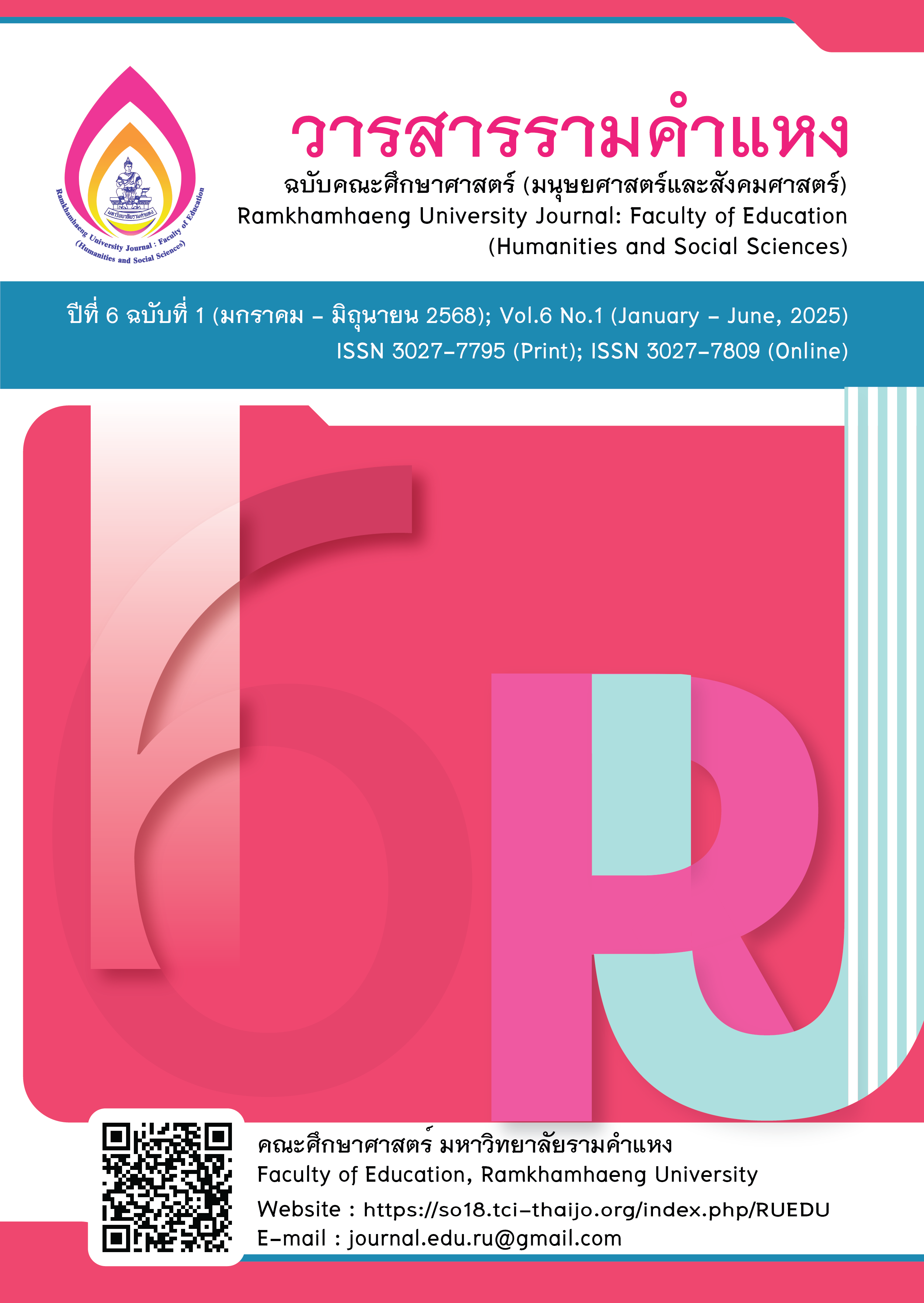The Results of the Self-Regulation Program on Online Learning Responsibility During the COVID-19 Situation Among Students in the Faculty of Education, Loei Rajabhat University
Main Article Content
Abstract
The study aimed to compare the online learning responsibility of students in the Faculty of
Education, Loei Rajabhat University, before and after participating in a self-regulation program.
The study's sample group consisted of 30 second-year students from the Faculty of Education,
Loei Rajabhat University, during the first semester of the academic year 2021. They were selected
through simple random sampling. The research tools included a questionnaire measuring online
learning responsibility with a reliability coefficient of 0.94 and a self-regulation program with an
appropriateness score of 4.4 4. The statistical methods employed for analysis included the mean,
standard deviation, and t-test. The results indicated that, after participating in the self-regulation
program, students' average scores for online learning responsibility increased significantly to 58.83,
compared to their scores before participating in the self-regulation program, which had an average
of 42.96. This statistical significance was observed at a significance level of .05.
Downloads
Article Details

This work is licensed under a Creative Commons Attribution-NonCommercial-NoDerivatives 4.0 International License.
ผู้ส่งบทความ (และคณะผู้วิจัยทุกคน) ตระหนักและปฎิบัติตามจริยธรรมการวิจัยอย่างเคร่งครัด ทั้งนี้บทความ เนื้อหา ข้อมูล ข้อความ ภาพ ตาราง แผนภาพ แผนผัง หรือข้อคิดเห็นใดๆ ที่ปรากฎในบทความ เป็นความคิดเห็นและความรับผิดชอบของผู้ส่งบทความ กองบรรณาธิการไม่จำเป็นต้องเห็นตามเสมอไป และไม่มีส่วนรับผิดชอบใดๆ โดยถือเป็นความรับผิดของของเจ้าของบทความเพียงผู้เดียว
References
Chantarajit, N. (2015). Development of learning management for enhancing self-regulation in learning of Prathoseuksa 6 students, under the office of Roi-Et primary educational area zone 2. Journal of Educational Measurement Mahasarakham University, 21(2), 22-40. (in Thai)
Iamsupasit, S. (2006). Theories and techniques in behavior modification. Chulalongkorn University Publishing House. (in Thai)
Inthason, S. (2020). COVID-19 and online teaching case study: Web programming course. Journa of Management Science Review, 22(2), 203-214. (in Thai)
Liangsakul, C. (2020). Education in the COVID-19. Military Staff Course, Armed forces staff college. (in Thai)
Sompong, T. (2020). The development of learning activity packages based on self-regulation on the topic of word types and functions of Thai learning area for mathayomsuksa 1 students [Master of Education, Sakon Nakhon Rajabhat University]. https://jci.snru.ac.th/ArticleViewFile?ArticleID=853&FileArticle=853-ArticleTextFile-20210208162430.pdf (in Thai)
Upamairat, T. (2019). The effect of a self-regulation program on attitude toward violence and self-behaviors of adolescent students. Psychiatric and mental health nursing Journal, 33(2), 13-28. (in Thai)
Wayo, W., Charoennukul, A., Chatsuda, Kankaynat, C., & Konyai, J. (2020). Online learning under the COVID-19 epidemic: Concepts and applications of teaching and learning management. Regional Health Promotion Center 9 Journal, 14(34), 285-298. (in Thai)
Wongthong, P. (2021). Online learning management in new normal for upper elementary school students. Rajapark Journal, 15(43), 101-117. (in Thai)
World Economic Forum. (2020, June 14). 4 ways COVID-19 could change how we educate future generations. https://www.weforum.org/agenda/2020/03/4-ways-covid-19-education-future-generations/.


